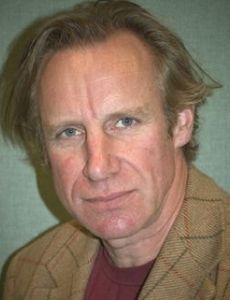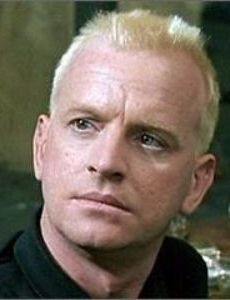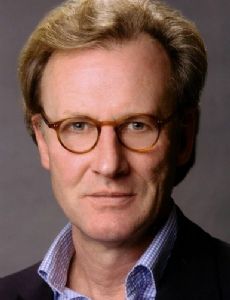Chariots of Fire is a 1981 British historical drama film. It tells the fact-based story of two athletes in the 1924 Olympics: Eric Liddell, a devout Scottish Christian who runs for the glory of God, and Harold Abrahams, an English Jew who runs to overcome prejudice.
The film was conceived and produced by David Puttnam, written by Colin Welland, and directed by Hugh Hudson. Ben Cross and Ian Charleson starred as Abrahams and Liddell, alongside Nicholas Farrell, Nigel Havers, Ian Holm, Lindsay Anderson, John Gielgud, Cheryl Campbell, and Alice Krige in supporting roles.
It was nominated for seven Academy Awards and won four, including Best Picture and Best Original Screenplay. It is ranked 19th in the British Film Institute's list of Top 100 British films. The film is also notable for its memorable electronic theme tune by Vangelis, who won the Academy Award for Best Original Score.
The film's title was inspired by the line, "Bring me my chariot of fire," from the William Blake poem adapted into the popular British hymn "Jerusalem"; the hymn is heard at the end of the film. The original phrase "chariot(s) of fire" is from 2 Kings 2:11 and 6:17 in the Bible.
PlotIn 1919, Harold Abrahams (Ben Cross) enters the University of Cambridge, where he experiences anti-Semitism from the staff, but enjoys participating in the Gilbert and Sullivan club. He becomes the first person to ever complete the Trinity Great Court Run – running around the college courtyard in the time it takes for the clock to strike 12. Abrahams achieves an undefeated string of victories in various national running competitions. Although focused on his running, he falls in love with a leading Gilbert and Sullivan soprano, Sybil (Alice Krige).
Eric Liddell (Ian Charleson), born in China of Scottish missionary parents, is in Scotland. His devout sister Jennie (Cheryl Campbell) disapproves of Liddell's plans to pursue competitive running. But Liddell sees running as a way of glorifying God before returning to China to work as a missionary.
When they first race against each other, Liddell beats Abrahams. Abrahams takes it poorly, but Sam Mussabini (Ian Holm), a professional trainer whom he had approached earlier, offers to take him on to improve his technique. This attracts criticism from the Cambridge college masters (John Gielgud and Lindsay Anderson), who allege it is not gentlemanly for an amateur to "play the tradesman" by employing a professional coach. Abrahams dismisses this concern, interpreting it as cover for anti-Semitic and class-based prejudice.
When Eric Liddell accidentally misses a church prayer meeting because of his running, his sister Jennie upbraids him and accuses him of no longer caring about God. Eric tells her that though he intends to eventually return to the China mission, he feels divinely inspired when running, and that not to run would be to dishonour God, saying, "I believe that God made me for a purpose. But He also made me fast, and when I run, I feel His pleasure."
The two athletes, after years of training and racing, are accepted to represent Great Britain in the 1924 Olympics in Paris. Also accepted are Abrahams' Cambridge friends, Lord Andrew Lindsay (Nigel Havers), Aubrey Montague (Nicholas Farrell), and Henry Stallard (Daniel Gerroll). While boarding the boat to Paris for the Olympics, Liddell learns the news that the heat for his 100-metre race will be on a Sunday. He refuses to run the race – despite strong pressure from the Prince of Wales and the British Olympic committee – because his Christian convictions prevent him from running on the Sabbath.
Hope appears when Liddell's teammate Lindsay, having already won a silver medal in the 400 metres hurdles, proposes to yield his place in the 400-metre race on the following Thursday to Liddell, who gratefully agrees. His religious convictions in the face of national athletic pride make headlines around the world.
Liddell delivers a sermon at the Paris Church of Scotland that Sunday, and quotes from Isaiah 40, ending with:
But they that wait upon the Lord shall renew their strength; they shall mount up with wings as eagles; they shall run, and not be weary; and they shall walk, and not faint.
Abrahams is badly beaten by the heavily favoured United States runners in the 200 metre race. He knows his last chance for a medal will be the 100 metres. He competes in the race, and wins. His coach Sam Mussabini is overcome that the years of dedication and training have paid off with an Olympic gold medal. Now Abrahams can get on with his life and reunite with his girlfriend Sybil, whom he had neglected for the sake of running. Before Liddell's race, the American coach remarks dismissively to his runners that Liddell has little chance of doing well in his now far longer 400 metre race. But one of the American runners, Jackson Scholz, hands Liddell a note of support for his convictions. Liddell defeats the American favourites and wins the gold medal.
The British team returns home triumphant. As the film ends, onscreen text explains that Abrahams married Sybil, and became the elder statesman of British athletics. Liddell went on to missionary work in China. All of Scotland mourned his death in 1945 in Japanese-occupied China.
https://en.wikipedia.org/wiki/Chariots_of_Fire
Chariots of Fire1981 Film
Synopsis by Don Kaye
Based on a true story, Chariots of Fire is the internationally acclaimed Oscar-winning drama of two very different men who compete as runners in the 1924 Paris Olympics. Eric Liddell (Ian Charleson), a serious Christian Scotsman, believes that he has to succeed as a testament to his undying religious faith. Harold Abrahams (Ben Cross), is a Jewish Englishman who wants desperately to be accepted and prove to the world that Jews are not inferior. The film crosscuts between each man's life as he trains for the competition, fueled by these very different desires. As compelling as the racing scenes are, it's really the depth of the two main characters that touches the viewer, as they forcefully drive home the theme that victory attained through devotion, commitment, integrity, and sacrifice is the most admirable feat that one can achieve. (Ian Holm was nominated for an Oscar as Best Supporting Actor in his role as Abrahams' coach), and this powerful film ended up with four Academy Awards: Best Picture, Best Original Screenplay, Best Costume Design, and Best Original Score.
http://www.allmovie.com/movie/chariots-of-fire-v8929
Chariots of Fire1981 Film
It's the post-WWI era. Britons Harold Abrahams and Eric Liddell are both naturally gifted fast sprinters, but approach running and how it fits into their respective lives differently. The son of a Lithuanian-Jew, Harold, who lives a somewhat privileged life as a student at Cambridge, uses being the fastest to overcome what he sees as the obstacles he faces in life as a Jew despite that privilege. In his words to paraphrase an old adage, he is often invited to the trough, but isn't allowed to drink. His running prowess does earn him the respect of his classmates, especially his running teammates, and to some extent the school administration, if only he maintains what they consider proper gentlemanly decorum, which isn't always the case in their minds. Born in China the son of Christian missionaries, Eric, a Scot, is a devout member of the Church of Scotland who eventually wants to return to that missionary work. He sees running as a win-win in that the notoriety of being fast gives him an added outlet to spread the word of God, while he sees his speed as being a gift from God, and he wants to run to honor God and that gift. This view does not sit well with his sister, Jennie Liddell, who sees his running as only taking away time from his work to God. Harold and Eric's lives do intersect in national races, but it is the 100 meter track event at the 1924 Paris Olympics which the two men and their supporters most anticipate. Beyond the fact that Americans Charles Paddock and Jackson Scholz are favored in the event, the much anticipated head to head between Harold and Eric may be further shadowed by other issues, especially as it affects Eric's Christian beliefs.
- Written by Huggo
The story, told in flashback, of two young British sprinters competing for fame in the 1924 Olympics. Eric, a devout Scottish missionary runs because he knows it must please God. Harold, the son of a newly rich Jew runs to prove his place in Cambridge society. In a warmup 100 meter race, Eric defeats Harold, who hires a pro trainer to prepare him. Eric, whose qualifying heat is scheduled for a Sunday, refuses to run despite pressure from the Olympic committee. A compromise is reached when a nobleman allows Eric to compete in his 400 meter slot. Eric and Harold win their respective races and go on to achieve fame as missionary and businessman/athletic advocate, respectively.
- Written by Joe Jurca
Two British track athletes, one a determined Jew and the other a devout Christian, compete in the 1924 Olympics.
- Written by Kenneth Chisholm
************ (Warning: contains spoilers!) ************
The movie is based on the true story of two British athletes competing in the 1924 Summer Olympics in Paris. Englishman Harold Abrahams (Ben Cross), who is Jewish, overcomes anti-Semitism and class prejudice in order to compete against the "Flying Scotsman", Eric Liddell (Ian Charleson), in the 100 metre race.
Opening in 1919 England, Harold Abrahams enters Cambridge University, where he meets with anti-Semitism from the staff, but enjoys participating in the Gilbert and Sullivan theatre club. He becomes the first person to ever complete the Trinity Great Court run: running around the court in the time it takes for the clock to strike 12. Abrahams achieves an undefeated string of victories in various national running competitions. Although focused on his running, he falls in love with a famous Gilbert and Sullivan soprano, Sybil (Alice Krige).
Meanwhile in Scotland, Eric Liddell (Ian Charleson), born in China of Scottish missionary parents, is in Scotland. His devout sister Jennie (Cheryl Campbell) disapproves of Liddell's plans to pursue competitive running. But Liddell sees running as a way of glorifying God before returning to China to work as a missionary.
Abrahams and Liddell meet for the first time in London in June 1923 when they first race against each other in a British open. Liddell beats Abrahams who takes it extremely badly. But Sam Mussabini (Ian Holm), a professional trainer whom Abrahams had approached earlier, offers to take him on to improve his technique. This attracts criticism from the Cambridge college masters (John Gielgud and Lindsay Anderson). In their meeting with Abrahams, the Cambridge masters allege it is ungentlemanly for an amateur to "play the tradesman" by employing a professional coach. Abrahams realizes this is a cover for their anti-Semitism and class entitlement, and dismisses their concern.
Meanwhile, when Liddell accidentally misses a church prayer meeting because of his running, his sister Jennie upbraids him and accuses him of no longer caring about God. But Eric tells her that though he intends to eventually return to the China mission, he feels divinely inspired when running, and that not to run would be to dishonor God: "I believe that God made me for a purpose. But He also made me fast, and when I run, I feel His pleasure."
The two athletes, after over a year of training and racing, are accepted to represent Great Britain in the 1924 Summer Olympics in Paris, France. Also accepted are Abrahams' Cambridge buddies, Lord Andrew Lindsay (Nigel Havers), Aubrey Montague (Nicholas Farrell), and Henry Stallard (Daniel Gerroll) whom join the UK team.
While boarding the boat to Paris for the Olympics, Liddell learns from the newspapers that the event for his 100 meter race will be on a Sunday. Liddell refuses to run the race despite strong pressure from the Prince of Wales (David Yelland) as well as the head of the British Olympic committee, Lord Cadogan (Patrick Magee) because Liddell's Christian convictions prevent him from running on the Christian Sabbath (Sunday).
Hope appears in the form of Liddell's teammate Lord Andrew Lindsay. Having already won a silver medal in the 400 meter hurdles, Lindsay proposes to yield his place in the 400 meter race on the following Tuesday to Liddell. Liddell gratefully agrees. His religious convictions in the face of national athletic pride make headlines around the world.
Liddell delivers a sermon at the Paris Church of Scotland that Sunday, and quotes from Isaiah 40, verse 31:
"But they that wait upon the LORD shall renew their strength; they shall mount up with wings as eagles; they shall run, and be not weary; and they shall walk, and not faint."
Meanwhile, Abrahams is badly beaten by the heavily favored and more experienced United States runner Charles Paddock (Dennis Christopher) in the 200 meter race who wins the gold medal, while Abrahams takes a second place silver medal. Abrahams knows that his last chance for a gold medal will be the 100 meter run. He competes in the 100 meter sprint and wins, beating Paddock and the rest of the Americans.
On Tuesday, just before Liddell's race, the American coach remarks to his runners that Liddell has little chance of doing well in his now far longer 400 meter race. But one of the American runners, Jackson Scholz (Brad Davis), hands Liddell a note of support for his convictions. Liddell defeats all the American favorites and wins the gold medal.
The British team returns home triumphant. Abrahams and Liddell then part ways, with Abrahams returning to Sybil and Liddell goes off to return to China with his missionary family. As the film ends, an onscreen text explains that Abrahams married Sybil, and became the elder statesman of British athletics. He died in January 1978. The elulogy at Abrahams' funeral is delivered by the elderly Lord Andrew Lindsay, the last surviving member of the 1924 UK Olympic Team. Eric Liddell went on to his missionary work back in China where he later died in a prison camp at the hands of Japanese troops in 1945.
| Directed by | |||
| Produced by | |||
| Written by | |||
| Screenplay by |
|
||
| Story by |
|
||
| Based on |
|
||
| Starring | |||
| Narrated by |
|
||
| Music by | |||
| Cinematography | |||
| Edited by | |||
| Animation by |
|
||
| Layouts by |
|
||
| Backgrounds by |
|
||
| Color process |
|
||
| Production company | |||
| Distributed by | |||
| Release date |
|
||
| Running time | 124 minutes
|
||
| Country | United Kingdom
|
||
| Language | English
|
||
| Budget | $5.5 million (£3 million)
|
||
| Box office | $59 million (U.S.)
|
ADDITIONAL DETAILS
| Type | |||
| Class |
|
||
| Theme |
|
||
| Tone |
|
||
| Mood |
|
Eric Liddell: My arrogance, sir, extends just as far as my conscience demands.
Lord Birkenhead: Fine, then let's hope that is wise enough to give you room to maneuver.
More...
This page is the FamousFix profile for Chariots of Fire. Content on this page is contributed by editors who belong to our editorial community. We welcome your contributions... so please create an account if you would like to collaborate with other editor's in helping to shape this website.
On the Chariots of Fire page you will be able to add and update factual information, post media and connect this topic to other topics on the website. This website does skew towards famous actors, musicians, models and sports stars, however we would like to expand that to include many other interesting topics.


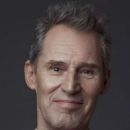

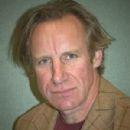
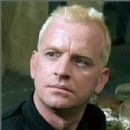
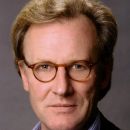
![From Here to Eternity - Yours Retro Magazine Pictorial [United Kingdom] (June 2022)](http://img3.bdbphotos.com/images/130x130/q/9/q9qhhrjoyfciryqi.jpg?skj2io4l)






